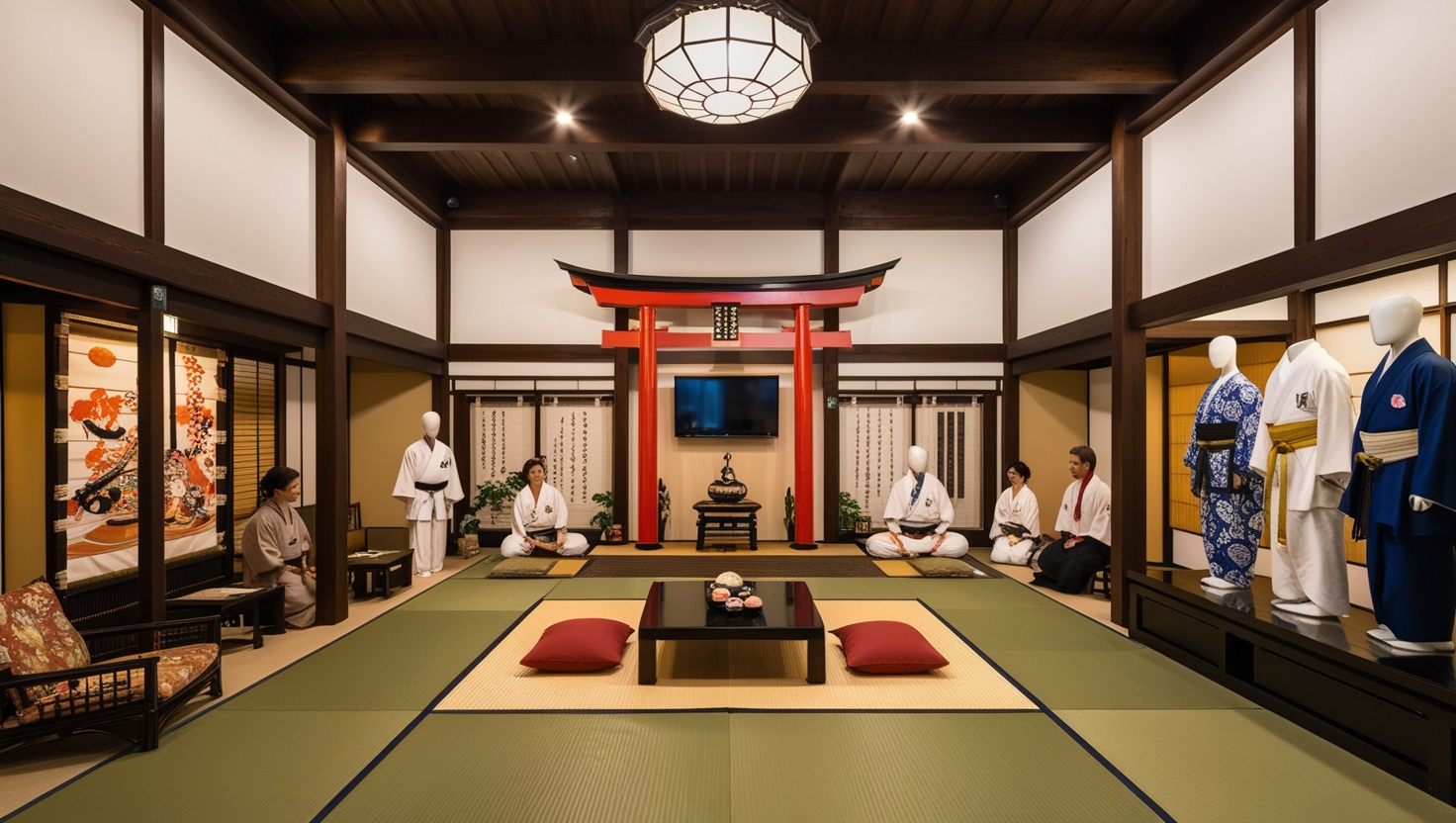
Introduction:
The Dojo Centro Cultural Japones stands as a beacon of cultural exchange, offering a profound immersion into Japan’s vibrant traditions and customs. This unique cultural centre provides an enriching environment where visitors can explore the essence of Japanese heritage, from martial arts to traditional arts, cuisine, and philosophy. By serving as a bridge between cultures, the Dojo Centro Cultural Japones fosters understanding and appreciation for the beauty of Japanese traditions in the modern world.
The Origins of Dojo Centro Cultural Japones
The term “dojo” traditionally refers to a training space for martial arts, but in the context of the Dojo Centro Cultural Japones, it extends far beyond physical practice. This cultural centre embodies a holistic approach to preserving and promoting Japanese culture. Rooted in the philosophy of harmony and discipline, the centre offers a variety of programs and activities that honour Japan’s deep traditions while welcoming people from all walks of life to participate.
The establishment of the Dojo Centro Cultural Japones reflects a desire to create a sanctuary where individuals can not only learn about Japanese customs but also experience them firsthand. Whether through the study of martial arts, calligraphy, tea ceremonies, or traditional dance, the centre provides a gateway to the multifaceted world of Japanese culture.
Exploring the Martial Arts Legacy
One of the primary focuses of the Dojo Centro Cultural Japones is martial arts, which hold a special place in Japanese culture. Disciplines such as judo, kendo, aikido, and karate are taught at the centre by experienced instructors who emphasise physical technique and the practice’s physical and spiritual aspects. Mapan is deeply intertwined with principles of respect, self-discipline, and inner peace, all of which are integral to the teachings at the Dojo Centro Cultural Japones.
Practising martial arts here is not just about learning self-defence; it’s a journey of self-discovery and personal growth. Participants often find that their lessons extend far beyond the dojo, influencing their daily lives and interactions. The Dojo Centro Cultural Japones nurtures this transformative process, making it a cornerstone of its mission.
The Art of Japanese Traditions
The Dojo Centro Cultural Japones is a treasure trove of traditional Japanese arts. Visitors can immerse themselves in activities such as ikebana (flower arranging), origami, and shodo (calligraphy). These art forms are celebrated for their simplicity and elegance, reflecting the Japanese aesthetic principle of “wabi-sabi,” which values imperfection and transience.
For example, shodo is more than just writing characters; it’s a meditative practice that combines focus and creativity. Similarly, ikebana teaches the beauty of balance and harmony in nature, offering participants a chance to connect with the environment meaningfully. These activities provide a sense of tranquillity and mindfulness, aligning with the core values promoted at the Dojo Centro Cultural Japones.
The Culinary Journey
No exploration of Japanese culture would be complete without delving into its rich culinary traditions. The Dojo Centro Cultural Japones frequently hosts workshops and events that introduce visitors to the art of Japanese cooking. From making sushi and sashimi to mastering the techniques of tempura or ramen preparation, the centre offers an authentic taste of Japan.
These culinary experiences go beyond food preparation. Delving into Japanese cuisine’s cultural significance, participants learn about the importance of seasonality and presentation, which are fundamental to Japanese dining. The workshops provide a hands-on way to appreciate the meticulous attention to detail that characterises Japanese cooking, making them a favourite among visitors to the Dojo Centro Cultural Japones.
Cultural Festivals and Celebrations
The Dojo Centro Cultural Japones also serves as a hub for cultural festivals and celebrations, bringing the spirit of Japan to life. Events such as cherry blossom festivals, Tanabata, and Obon are celebrated enthusiastically, allowing participants to experience the joy and community spirit these occasions inspire.
Traditional music and dance performances, such as taiko drumming or kabuki theatre, often accompany these festivals. The centre also provides opportunities to wear traditional attire like kimono or yukata, enhancing the immersive experience. These celebrations at the Dojo Centro Cultural Japones preserve Japanese traditions and create lasting memories for those who attend.
Philosophy and Mindfulness Practices
Another aspect of the Dojo Centro Cultural Japones that resonates with visitors is its emphasis on Japanese philosophy and mindfulness practices. The centre offers classes and workshops on Zen meditation, a practice that promotes mental clarity and inner peace. Through these sessions, participants can explore the concept of “ma,” or the space between, a fundamental idea in Japanese aesthetics and thought.
Tea ceremonies, or “chanoyu,” are another avenue through which the centre introduces visitors to the principles of mindfulness. The meticulous preparation and presentation of tea embody respect, harmony, and tranquillity, making the tea ceremony a powerful tool for cultivating awareness and appreciation of the present moment.
Building Cross-Cultural Connections
One of the most remarkable aspects of the Dojo Centro Cultural Japones is its role in fostering cross-cultural connections. The exchange thrives by opening its doors to people of diverse backgrounds. Visitors learn about Japanese traditions and share their cultural perspectives, enriching the overall experience.
Thelds bridges communities through its programs and events, through programs and events promoting mutual respect and understanding. This exchange of ideas and experiences underscores the universal values at the heart of Japanese culture, such as harmony, respect, and the pursuit of balance.
The Modern Relevance of Japanese Culture
While deeply rooted in tradition, the Dojo Centro Cultural Japones also embraces modernity, making Japanese culture accessible and relevant to contemporary audiences. By integrating technology and modern teaching methods into its programs, the centre ensures its offerings appeal to people of all ages. For example, virtual workshops and online resources allow participants from around the world to engage with Japanese culture, further expanding the reach and impact of the Dojo Centro Cultural Japones.
Conclusion: A Gateway to Japan
The Dojo Centro Cultural Japones is more than just a cultural centre; it is a vibrant gateway to Japan’s timeless beauty and wisdom. By offering a diverse range of activities, from martial arts and traditional arts to culinary experiences and mindfulness practices, the centre provides a holistic introduction to Japanese culture. Its dedication to preserving and sharing this rich heritage makes it an invaluable resource for anyone seeking to deepen their understanding of Japan.
Through its programs, the Dojo Centro Cultural Japones educates and inspires, fostering a profound appreciation for the values and traditions that make Japanese culture so unique. Whether you are looking to practice martial arts, learn the art of sushi-making, or simply experience the serenity of a Zen garden, the Dojo Centro Cultural Japones invites youto set out on a path of learning, development, and connection.


